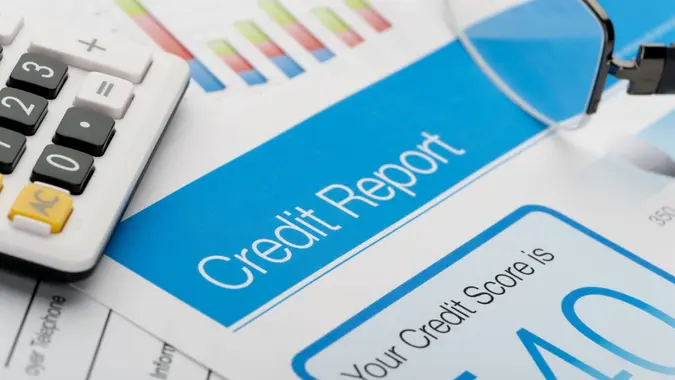Over Half of Gen Z Believe This Myth About Their Credit Score

Commitment to Our Readers
GOBankingRates' editorial team is committed to bringing you unbiased reviews and information. We use data-driven methodologies to evaluate financial products and services - our reviews and ratings are not influenced by advertisers. You can read more about our editorial guidelines and our products and services review methodology.

20 Years
Helping You Live Richer

Reviewed
by Experts

Trusted by
Millions of Readers
A good credit score is key to everything from renting an apartment to securing a loan, but there appear to be some misconceptions floating out there about what it takes to actually get one.
According to a new Capital One survey, 53% of Gen Z believe that carrying a credit card balance each month increases their credit score. This is not true.
“Carrying a balance on your credit cards each month not only does not increase your credit score, but in fact actually harms your credit score,” said Rachel Ehrlich, COO of Klutch. “One of the calculations of credit score is your availability, which is essentially how much you have spent versus how big your credit card limit is. The higher the availability, the better for your credit score. By keeping your balance as low as possible you are increasing your availability (the amount by which you have available to spend) and therefore benefiting your credit score.”
Andrew Lokenauth, founder of Fluent in Finance, shared additional steps to take to actually improve your credit score.
- Pay your bills on time: This is the most important factor in determining your credit score. Make sure to pay all of your bills on time, including credit card bills, mortgage payments and utility bills.
- Reduce your debt: High levels of debt can have a negative impact on your credit score. Try to pay down your debt as much as possible, and avoid taking on new debt if you can.
- Use credit responsibly: Only use credit when you need it, and make sure to pay your bills on time. Avoid maxing out your credit cards, as this can have a negative impact on your credit score.
- Maintain a good credit history: The longer you have a good credit history, the better your credit score will be. Try to keep your accounts open for as long as possible, and avoid closing credit accounts unless absolutely necessary.
Ian Wright, managing director at businessfinancing.co.uk, lent a couple more tips.
- Track spending: Tracking spending helps you gain better control of your finances, which in turn can help improve your credit score. Setting up a budget and tracking your spending can help you identify areas where you can reduce spending and free up additional funds to pay off debt.
- Monitor account activity: Reviewing your credit report regularly can provide valuable insight into how your credit score is being impacted by different activities and behaviors. Monitoring account activity also helps detect any unauthorized activity or fraudulent accounts, which can hurt your credit score.
 Written by
Written by  Edited by
Edited by 
























